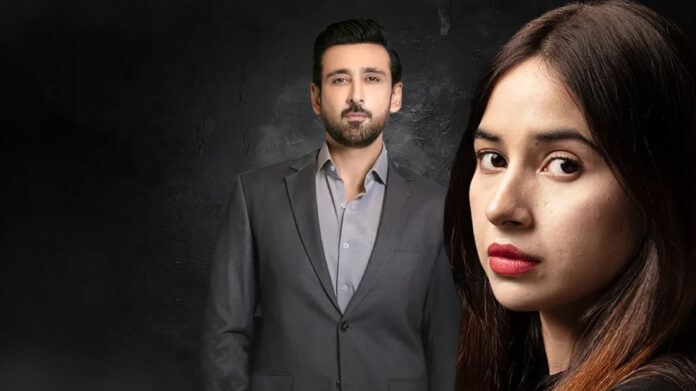For some, Green Entertainment’s drama ‘Grey’ might be hailed as a commendable project, while others may hold a different opinion. However, one aspect that everyone can unanimously agree upon is that ‘Grey‘ effectively tackled the harsh realities of harassment and exploitation faced by women in various forms. It genuinely depicted how women experience exploitation in different facets, shedding light on the harsh realities.
Interestingly, the drama serial ‘Grey’ written by Rida Bilal and directed by Sohail Javed, didn’t initially market itself as a drama addressing social issues. Instead, it started as a suspenseful story that uncovered a case of harassment and gradually unfolded to delve into the societal problems of women’s exploitation from diverse angles.
The drama gracefully concluded after sixteen episodes, delivering crucial messages without resorting to unnecessary narrative extensions or subjecting the audience to the distress of excessive flashbacks or prolonged misery, ensuring viewers were engaged without reaching a breaking point.
But did the last episode do justice to the concept ‘Grey’ was resting on?
Bringing forward a balanced narrative
The last episode systematically reached its conclusion. However, it did lose its initial hook and engagement, feeling more like a checklist for the makers to cover various elements. The excessive use of monologues became somewhat tedious in certain instances.
Yet, what truly distinguished the episode was how it wrapped up each character’s storyline. Instead of the conventional portrayal of everyone achieving justice or living happily ever after, the drama opted for a more realistic approach. It highlighted that in reality, the truth can be bitter, but there is always a glimmer of hope. The depiction of characters as morally ambiguous individuals, grappling with decisions between right and wrong, added depth to the narrative.
In Salaar and Emaan’s storyline, portrayed by Sami Khan and Sabeena Farooq, their lives took dramatic turns after the case’s conclusion. While Salaar was declared innocent with a fine that Imaan had to pay, the last episode showcased Imaan’s marriage and her continued career as an actress. Salaar, on the other hand, sought redemption for his mistakes from his wife, played by Zoha Rahman, who ultimately opted for a divorce. The mature handling of their relationship’s conclusion and the decisions made for the betterment of their children stood out.
The drama unveiled the mystery that the audience was keenly awaiting to see in the last scene, in a rather unclimactic way. We see pictures of Salaar and Emaan’s private moments, indicating a consensual relationship and proving that Emaan wrongly accused Salar. We were left a bit disappointed seeing that the most pivotal mystery was revealed in an underwhelming manner.
As the audience, we would have appreciated some creativity in executing this scene. Perhaps including Salaar’s interview in the background, which was showed in the second-last episode, providing insight into how the entire case affected his life, reputation, and the enduring impact. Kudos to Sami Khan for delivering the dialogues with genuine emotion, and Rida Bilal for penning down words that vividly expressed the pain of an innocent person wrongly accused of a crime.
Certainly, other aspects were intriguing. Saleem Mairaj once again stole the spotlight with his performance, as his character took justice into his own hands by killing Rafay in the drama. Rafay was about to get bail and flee the country after being proven mentally unstable. It was a satisfying conclusion to see him punished for his crime in a rather unconventional way, especially when the law and the system failed to do their job.
Unfortunately, when addressing Emaan’s maid character, portrayed by Fajr Sheikh, the makers depicted her ongoing misery, emphasizing that her battle still continues. This choice ensured that the story remained realistic and didn’t fall into the trap of becoming a fairytale.
The narrative also highlighted the significant role played by other entities and bodies in changing and developing the storyline. Noreen Gulwani and Faizan Sheikh, portraying journalists, delivered commendable performances. However, the monologues where they preached about moral responsibility and corruption were tedious. Their redemption through actions and presenting the truth would have sufficed. Paras Masroor also excelled as a corrupt politician who was violent towards his wife.
Grey’s bold portrayal of society’s shadows and grim realities
The drama’s resemblance to real cases, such as Meesha Shafi and Ali Zafar’s, and the inclusion of incidents reminiscent of Noor Mukadam’s tragedy, prompts a reflection on society’s grim reality. While depicting these stories forces viewers to confront prevalent societal issues, it also raises concerns about the potential hurt caused to the real individuals involved. It is crucial to consider whether consent was obtained before transforming these personal narratives into a public drama.
Moreover, Grey masterfully crafts diverse conclusions for its narratives, challenging societal judgments and shedding light on the harsh realities women face across different socio-economic backgrounds. The drama encourages audiences to ponder the prevalence of such cases in society while acknowledging the potential sensitivity of portraying real-life stories.
Alongside the main leads, the drama casts Saleem Mairaj, Zoha Rehman, Paras Masroor, Faizan Sheikh, Irfan Motiwala, Noreen Gulwani, Mahenur Haider, Mustafa Baloch, Fajr Sheikh, Nadeem Kazmi, Peerzada Salman, Salma Zafar, Shazia Gohar, Khalid Anum and Saifi Hasan.
Produced by Multiverse Entertainment in association with SJ Films Productions, ‘Grey’ is one of the few dramas that did justice in underlining a social cause they promised to present.




